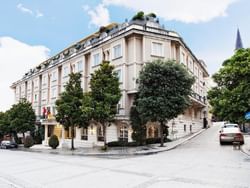
Eresin Hotels Sultanahmet is a luxury Istanbul boutique museum hotel in the historical heart of the city.
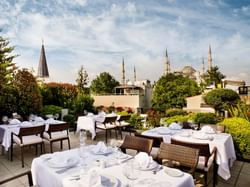
Welcome to our exquisite urban sanctuary, where nature meets modernity and the Bosphorus paints an awe-inspiring backdrop. Nestled high above the bustling city, our rooftop terrace at Eresin Hotels Sultanahmet promises an unparalleled experience that will leave you enchanted and rejuvenated.
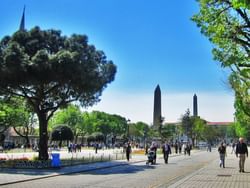
The Hippodrome, nestled in the heart of Istanbul's historic Sultanahmet district, is an open-air museum that whispers tales of the Byzantine Empire's past. Once a vibrant arena pulsating with the energy of chariot races and other spectacles, it now stands as a testament to the city's rich history.
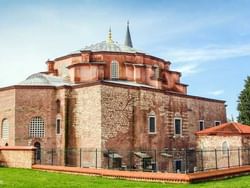
Little Hagia Sophia, formerly the Church of Saints Sergius and Bacchus, was built during the rule of Byzantine Emperor Justinian between 527-536. It was converted into a mosque by Ottoman Empire II. Beyazit in the early 16th century.
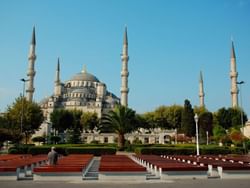
The Blue Mosque (Turkish: Sultanahmet Camii), was built in the early 17th century during the rule of Ottoman Sultan Ahmed I. Located on the Historical Peninsula, in the district to which gives its name, The Sultanahmet Mosque is considered to be the last great mosque of the classical period.
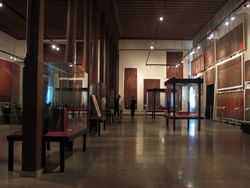
Nestled within the majestic Ibrahim Pasha Palace in Istanbul's Sultanahmet district lies the Turkish and Islamic Arts Museum, a treasure trove of artistic wonders. Established in the early 20th century, the museum boasts a vast collection spanning centuries.
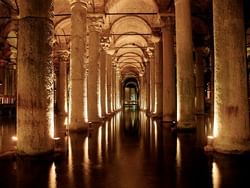
In the heart of Istanbul, beneath the vibrant streets, lies a hidden gem – the Basilica Cistern. This captivating underground marvel, dating back to the 6th century, was originally built as a water reservoir during the Byzantine era.

Unveiling a mosaic of history in Istanbul, the Hagia Irene Church stands as a captivating survivor, boasting the title of the city's oldest church still standing. Dating back to the 4th century and designated a UNESCO World Heritage Site, this Byzantine marvel offers a unique blend of architectural styles and a fascinating historical narrative.
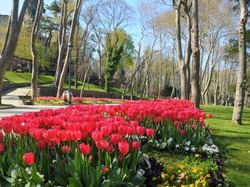
In the heart of Istanbul's vibrant energy lies an oasis of calm – Gülhane Park. This historic park, dating back to the Ottoman era, offers a welcome escape from the city's bustling streets.
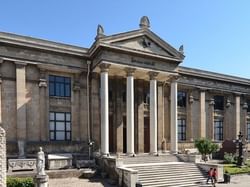
Embark on a captivating journey through time at the Istanbul Archaeology Museums, a complex housing three distinct museums within its walls. Founded in the late 19th century, this sprawling complex boasts an unparalleled collection of over one million artifacts, offering a glimpse into the rich and diverse history of civilizations that have flourished in the region.
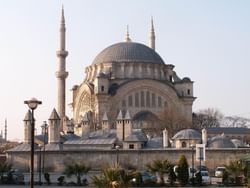
It is an Ottoman mosque in baroque style at Çemberlitaş neighborhood which was built between 1748-1755 by architects Mehmet Aga at the entrance of Grand Bazaar.
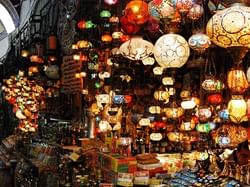
The Grand Bazaar, also known as Kapali Carsi, dates back to 1461, with 5,000 shops making it one of the largest and oldest indoor marketplaces in the world. The bazaar features such items as jewelry, carpets, spices, antiques, and hand-painted ceramics.
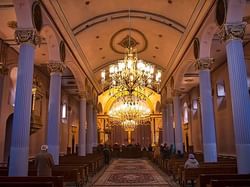
It is a Gregorian church of Istanbul Armenian Patriarchate in Kumkapı neighborhood. The construction date is exactly unknown. There have been several repairs due to fires and the last repairs have been in 1902 and 1985.
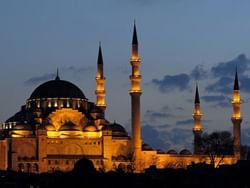
Towering over the historic city of Istanbul, the Suleymaniye Mosque is a captivating landmark renowned for its architectural grandeur, historical significance, and spiritual serenity. This magnificent mosque, commissioned by Suleiman the Magnificent in the 16th century, stands as a testament to Ottoman-era artistry and engineering. Its sprawling courtyards, towering dome, and intricate decorations captivate visitors from all walks of life.
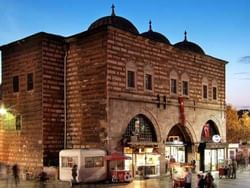
The Spice Bazaar, also known as the Misir Çarsisi, is an explosion of sights, smells, and tastes in the heart of Istanbul. This vibrant marketplace, established in the 17th century, beckons visitors with its colorful displays of spices, herbs, teas, and other culinary delights.
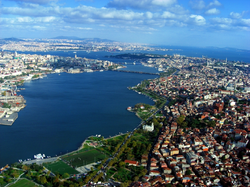
Golden Horn which is known as Halic in Turkish, is a major urban waterway and the primary inlet of the Bosphorus in Istanbul. It geographically separates the historical center of Istanbul from the rest of the city and forms a natural, sheltered harbour.
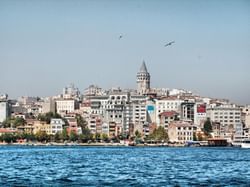
At 67 meters (219 feet) high, the Galata Tower rules over the Istanbul skyline, offering great views of the old city and its surroundings. The medieval stone tower, known as the Tower of Christ, was the tallest building in Istanbul when it was built in 1348.
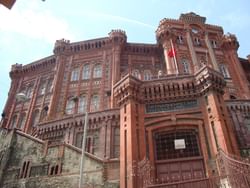
The patriarchate was established by one of Jesus’s Apostle Andrea in AD 37. After Roman Empire was divided into Eastern (Byzantium) and Western (Roman), it participated in the Orthodox Church within Eastern Roma (Byzantine) Empire in the 5th century.
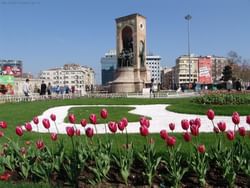
Immerse yourself in the heart of Istanbul at Taksim Square, a bustling hub overflowing with energy. Step onto the iconic Istiklal Street, a pedestrian paradise lined with charming shops, buzzing cafes, and delectable restaurants.
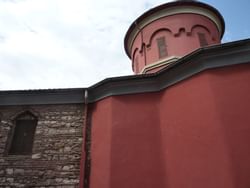
Embark on a historical adventure in Istanbul's heart, the vibrant Sultanahmet district. Step into the captivating St. Mary Church of the Mongols, a remarkable Byzantine church that whispers tales of the city's rich and ancient heritage.
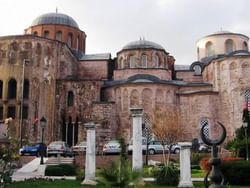
The Chora Church, also known as the Church of the Holy Savior in Chora, has been described as one of the most beautiful surviving works of Byzantine architecture. Dating back to the days of Constantine, Magnificent mosaics and frescoes depict the life of Jesus and his mother, Mary.
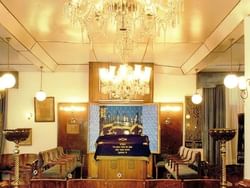
The Ahrida Synagogue is in Balat which was built in the earlier 15th century. The synagogue which took its name from Ohrid town of Macedonia that the founders emigrated to Istanbul, is the largest capacity Synagogue of the city.
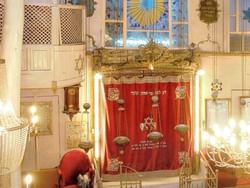
The Yanbol synagogue is in Balat – İstanbul and built during the rule of Byzantine by the Jews from Yambol city of Bulgaria. It was rebuilt in the 18th century and it is one of the two remaining ancient synagogues.
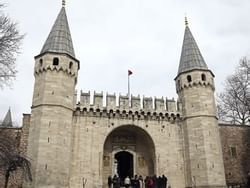
Topkapi Palace, the Great Palace of the Ottoman Sultans, is the most extensive and fascinating monument of Ottoman civil architecture in existence and one of the must-see attractions in Istanbul that combines The Harem, The Treasury with the Spoonmaker’s diamond (also known as Kasikci Diamond) which is the pride of the Palace.
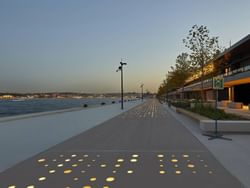
The World’s First Underground Cruise Ship Terminal.
Positioned as a homeport, Galataport Istanbul is a world-class cruise ship port that is set to vitalize cruise tourism across an extensive region from the Mediterranean basin to the Black Sea. An exemplary project worldwide and a groundbreaking innovation thanks to its special hatch system that enables the terminal to be placed underground.
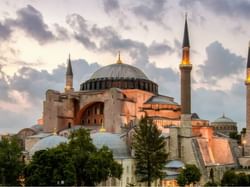
The Hagia Sophia (Aya Sofya)served as the cathedral of Constantinople and was the center of the religious life of the Byzantine Empire. Also a house of worship that served several religions well over the centuries.
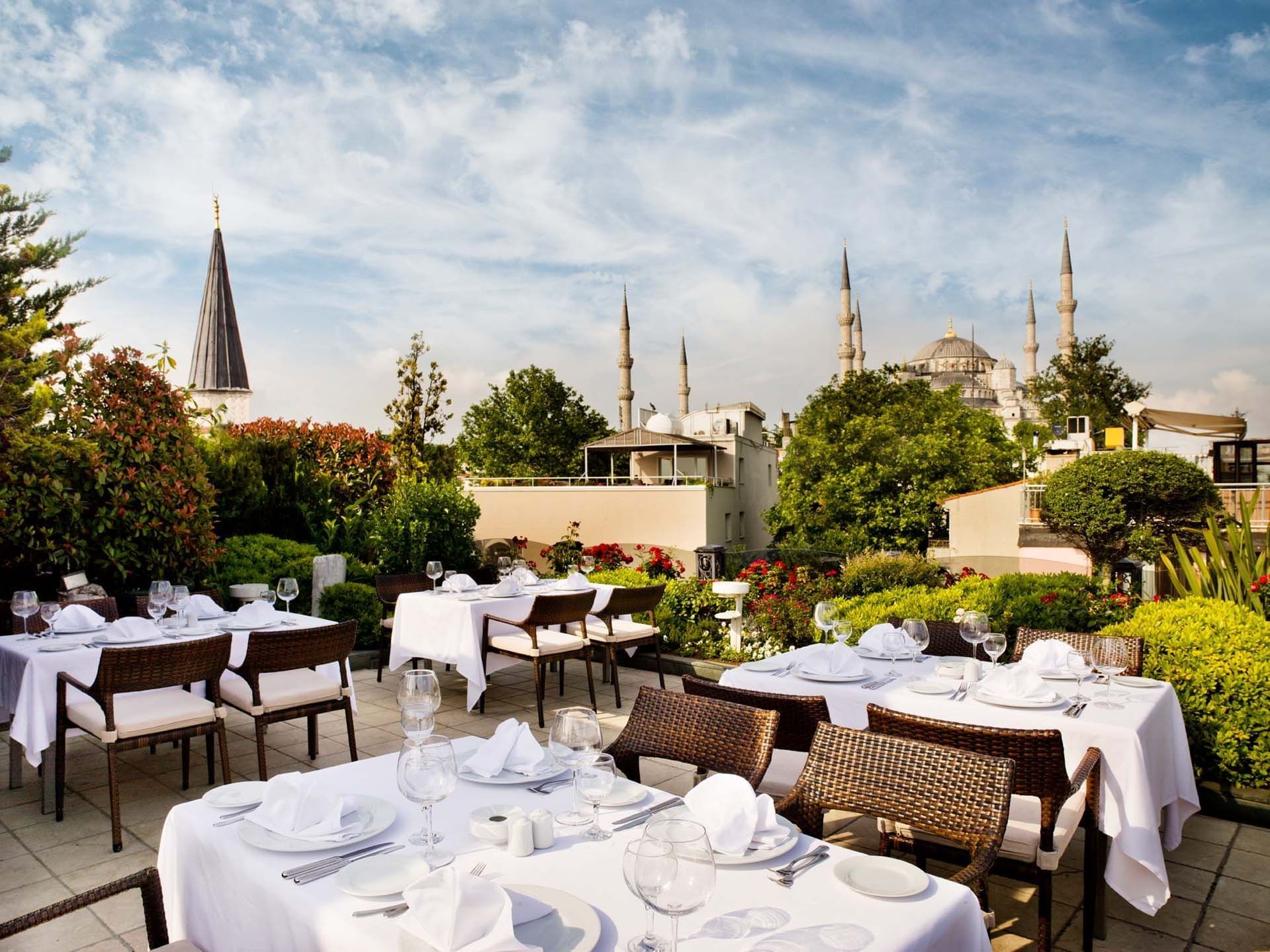
Rooftop Terrace Experience with Bosphorus View
Welcome to our exquisite urban sanctuary, where nature meets modernity and the Bosphorus paints an awe-inspiring backdrop. Nestled high above the bustling city, our rooftop terrace at Eresin Hotels Sultanahmet promises an unparalleled experience that will leave you enchanted and rejuvenated.
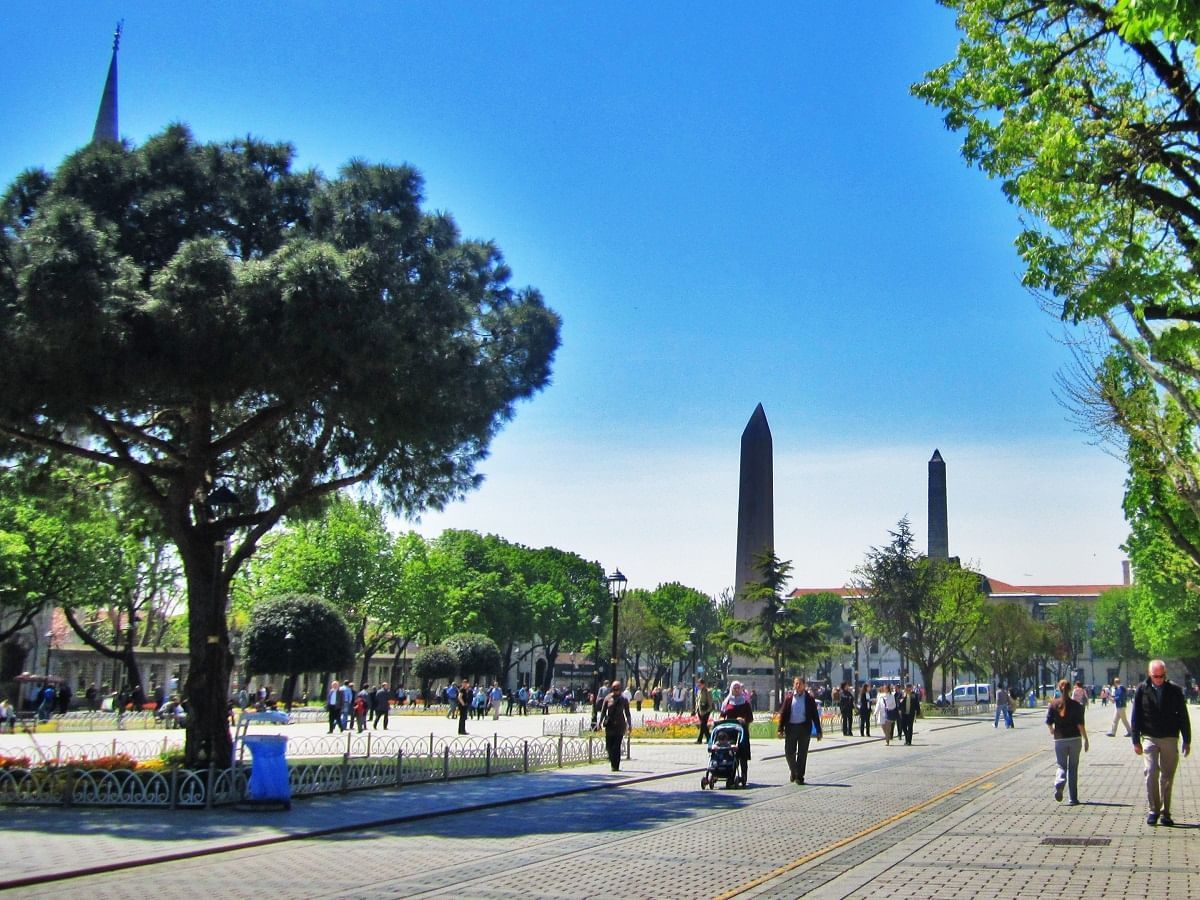
Hippodrome
The Hippodrome, nestled in the heart of Istanbul's historic Sultanahmet district, is an open-air museum that whispers tales of the Byzantine Empire's past. Once a vibrant arena pulsating with the energy of chariot races and other spectacles, it now stands as a testament to the city's rich history.
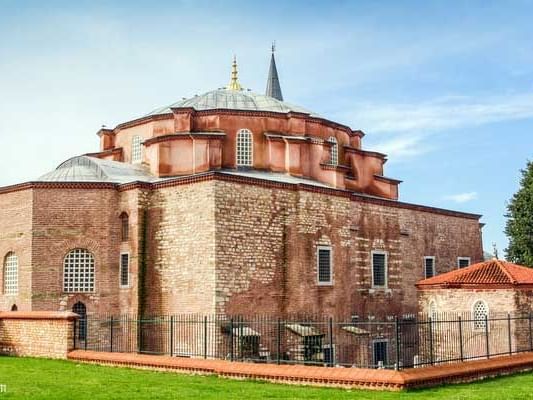
Little Hagia Sophia
Little Hagia Sophia, formerly the Church of Saints Sergius and Bacchus, was built during the rule of Byzantine Emperor Justinian between 527-536. It was converted into a mosque by Ottoman Empire II. Beyazit in the early 16th century.
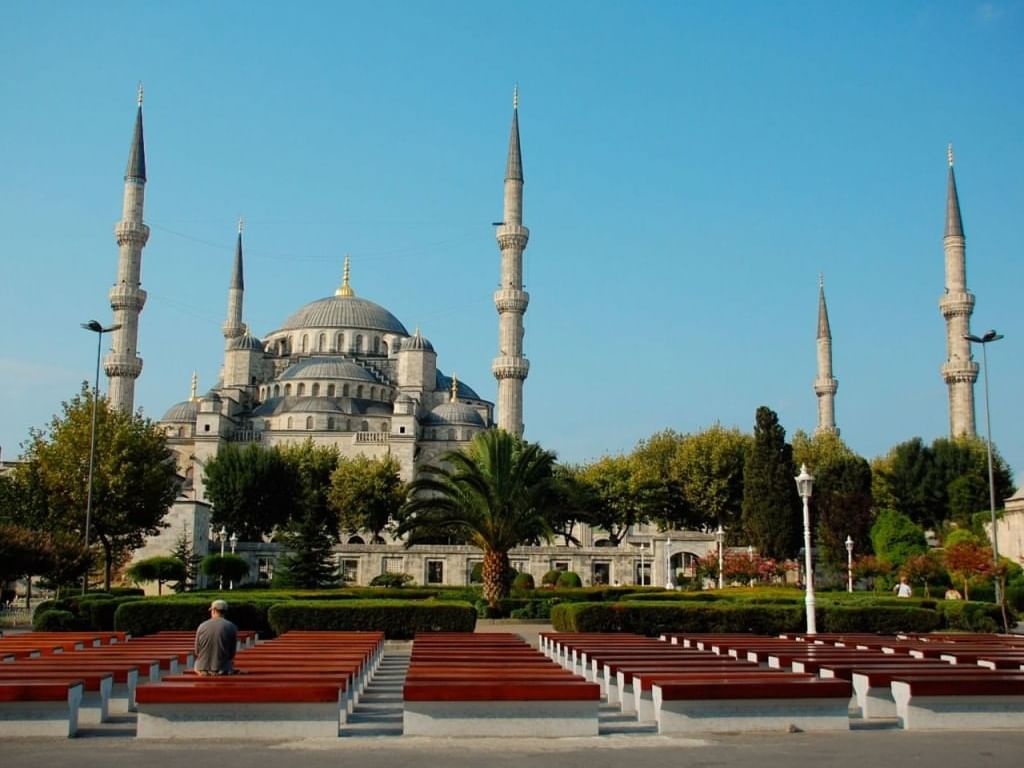
Blue Mosque
The Blue Mosque (Turkish: Sultanahmet Camii), was built in the early 17th century during the rule of Ottoman Sultan Ahmed I. Located on the Historical Peninsula, in the district to which gives its name, The Sultanahmet Mosque is considered to be the last great mosque of the classical period.
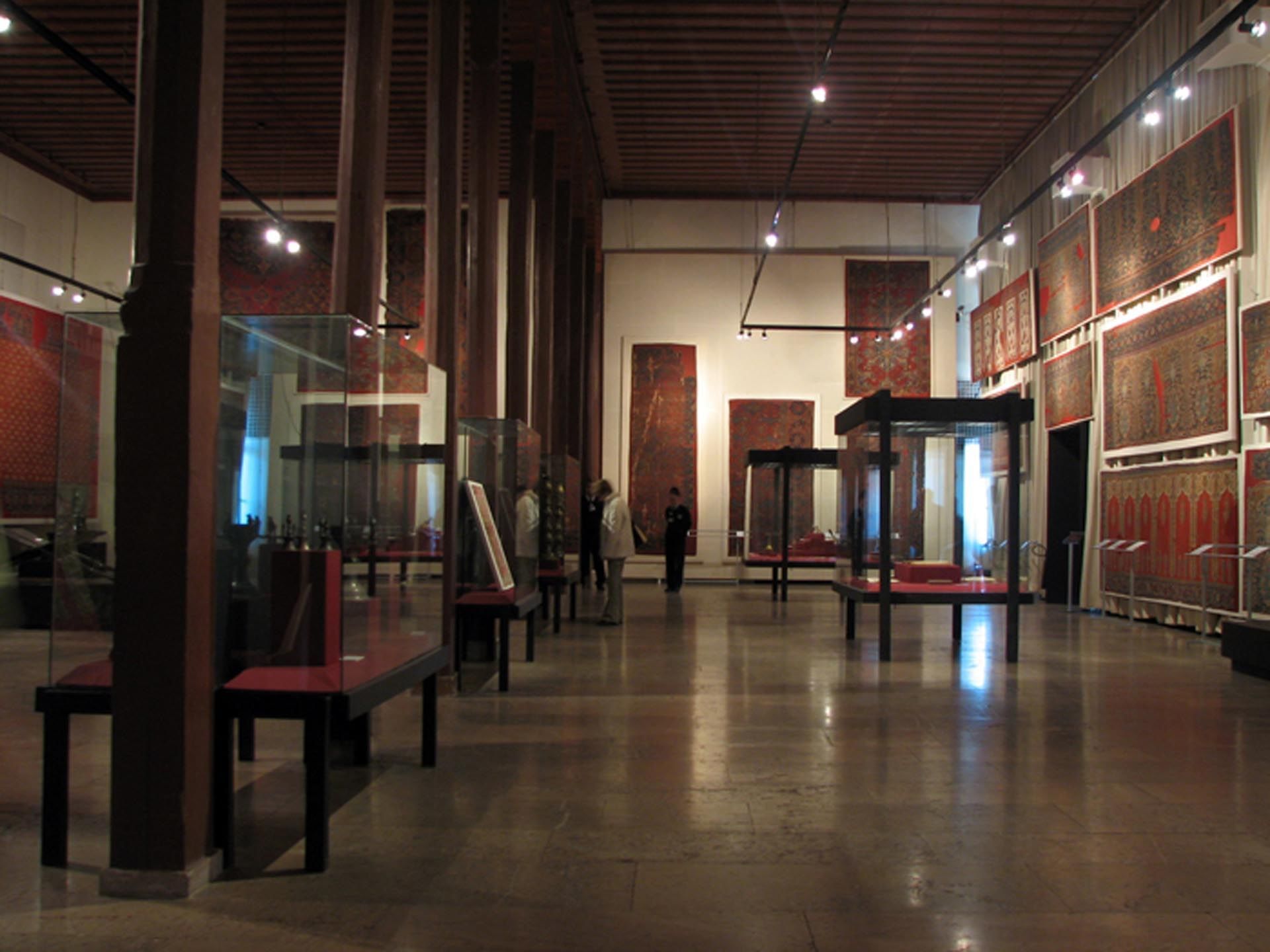
Turkish and Islamic Arts Museum
Nestled within the majestic Ibrahim Pasha Palace in Istanbul's Sultanahmet district lies the Turkish and Islamic Arts Museum, a treasure trove of artistic wonders. Established in the early 20th century, the museum boasts a vast collection spanning centuries.
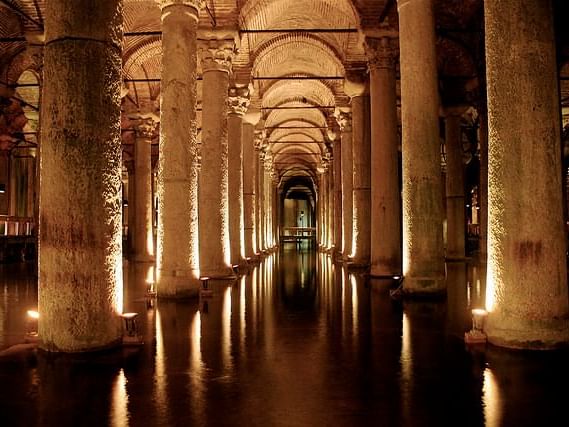
Basilica Cistern
In the heart of Istanbul, beneath the vibrant streets, lies a hidden gem – the Basilica Cistern. This captivating underground marvel, dating back to the 6th century, was originally built as a water reservoir during the Byzantine era.
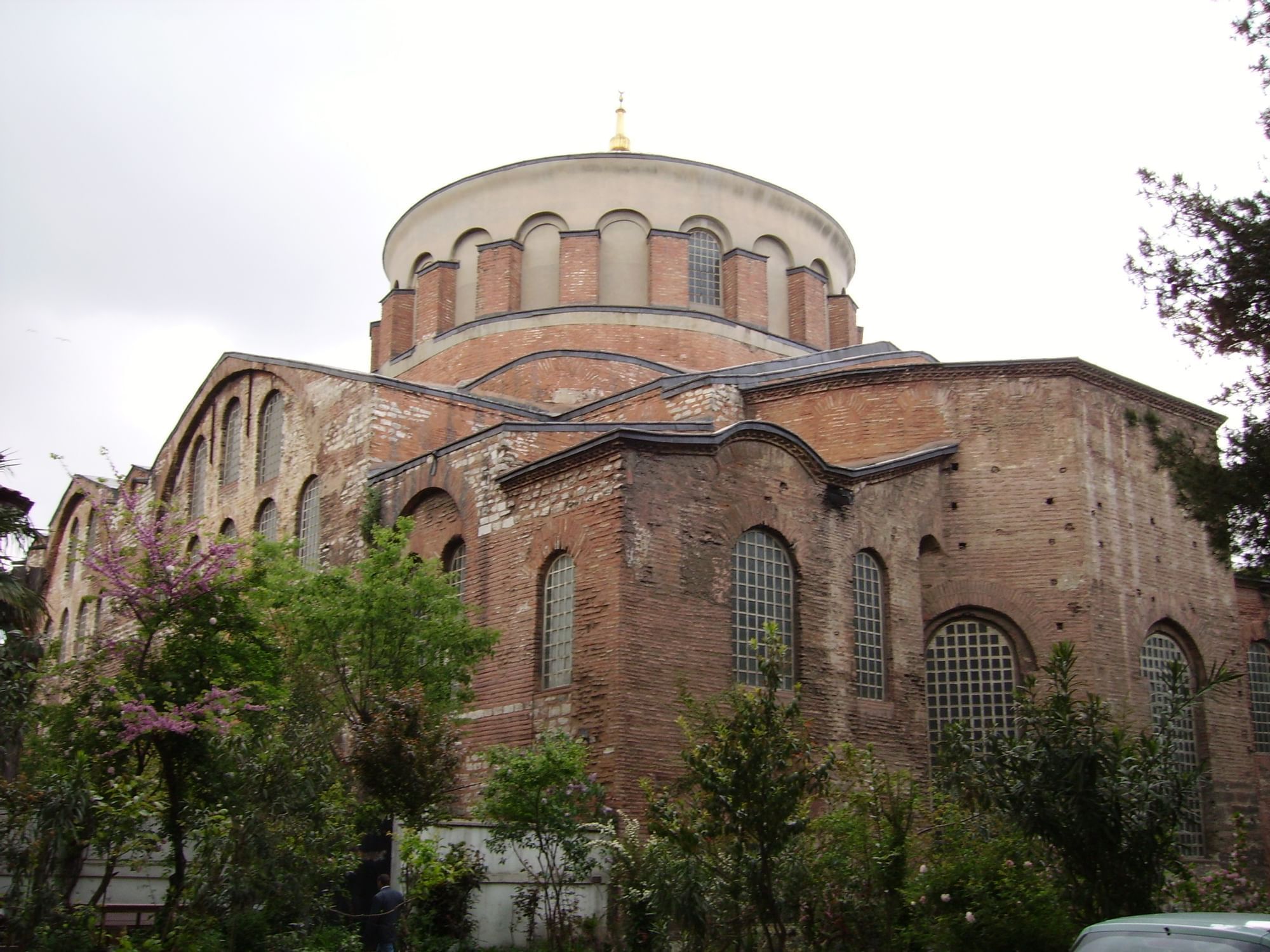
Hagia Irene Church
Unveiling a mosaic of history in Istanbul, the Hagia Irene Church stands as a captivating survivor, boasting the title of the city's oldest church still standing. Dating back to the 4th century and designated a UNESCO World Heritage Site, this Byzantine marvel offers a unique blend of architectural styles and a fascinating historical narrative.
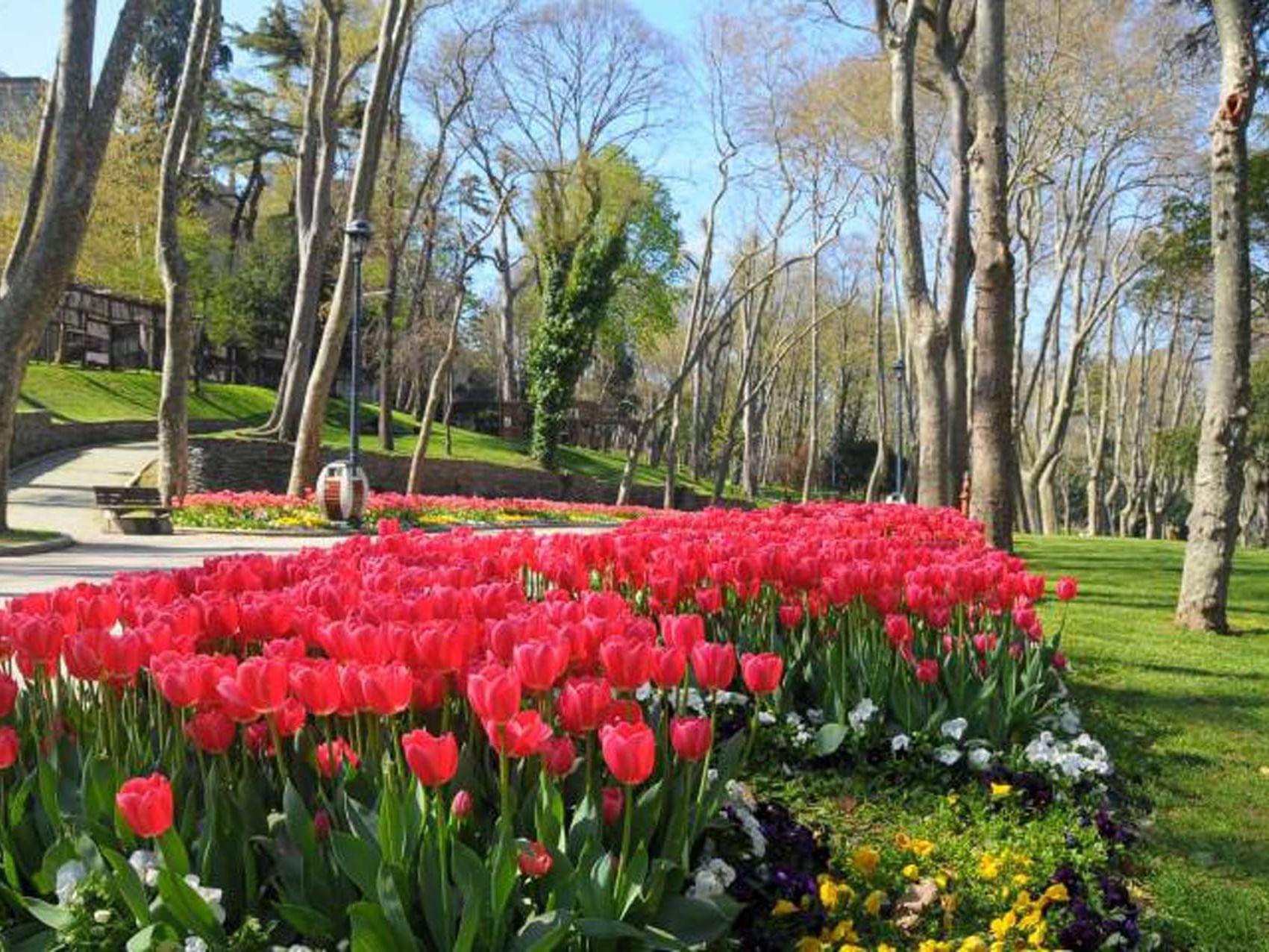
Gulhane Park
In the heart of Istanbul's vibrant energy lies an oasis of calm – Gülhane Park. This historic park, dating back to the Ottoman era, offers a welcome escape from the city's bustling streets.
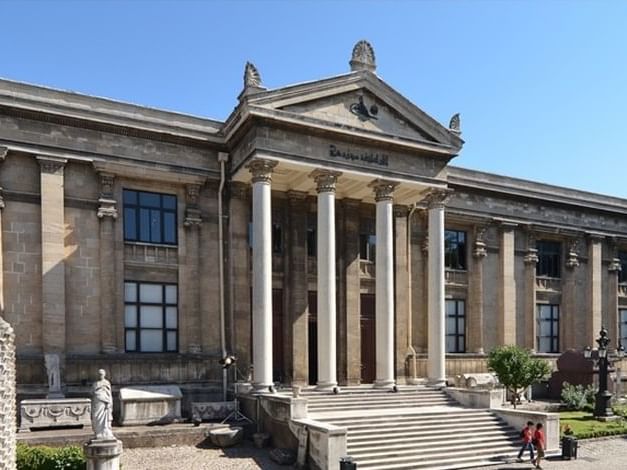
Istanbul Archeological Museum
Embark on a captivating journey through time at the Istanbul Archaeology Museums, a complex housing three distinct museums within its walls. Founded in the late 19th century, this sprawling complex boasts an unparalleled collection of over one million artifacts, offering a glimpse into the rich and diverse history of civilizations that have flourished in the region.
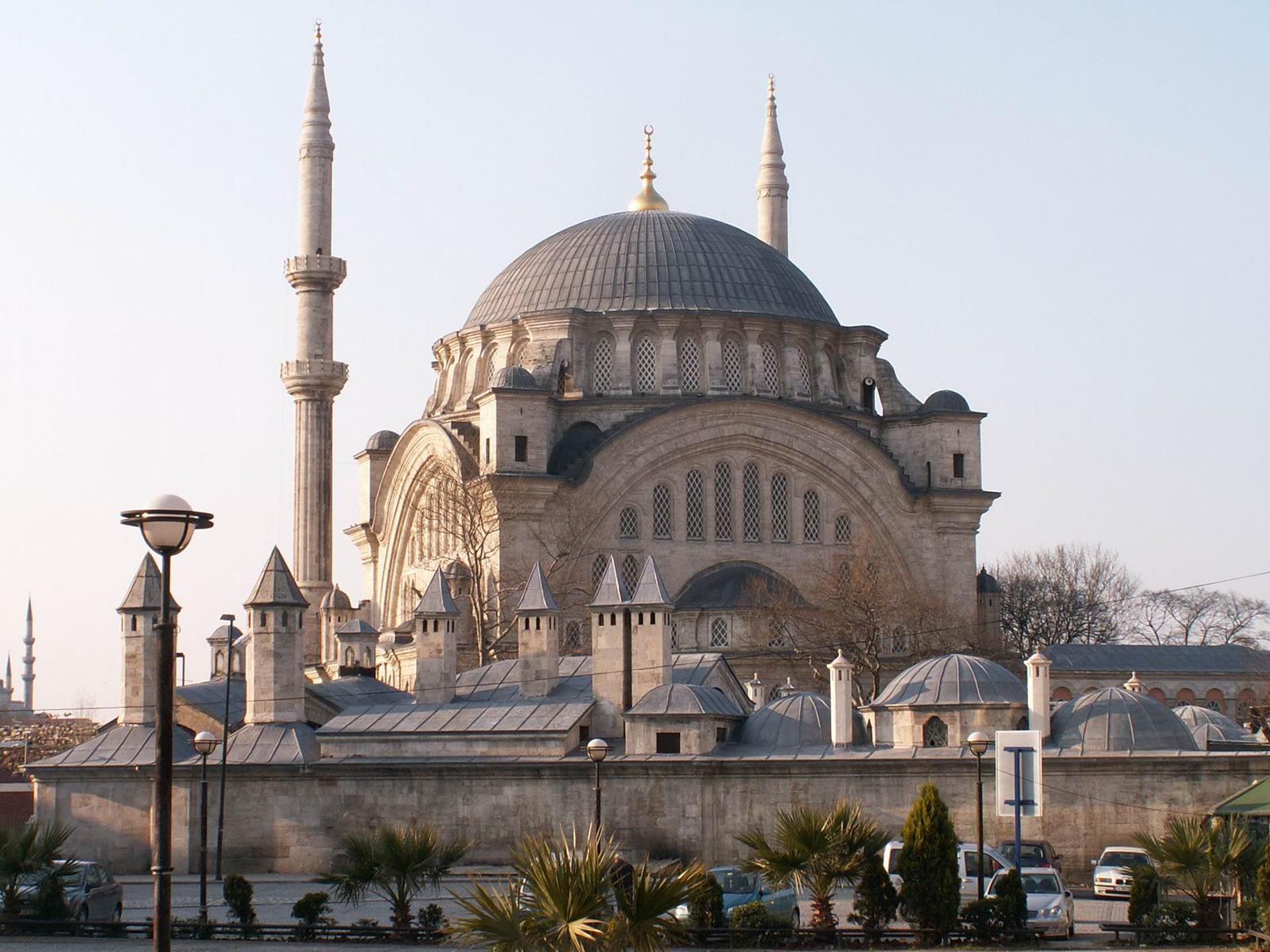
Nuruosmaniye Mosque
It is an Ottoman mosque in baroque style at Çemberlitaş neighborhood which was built between 1748-1755 by architects Mehmet Aga at the entrance of Grand Bazaar.
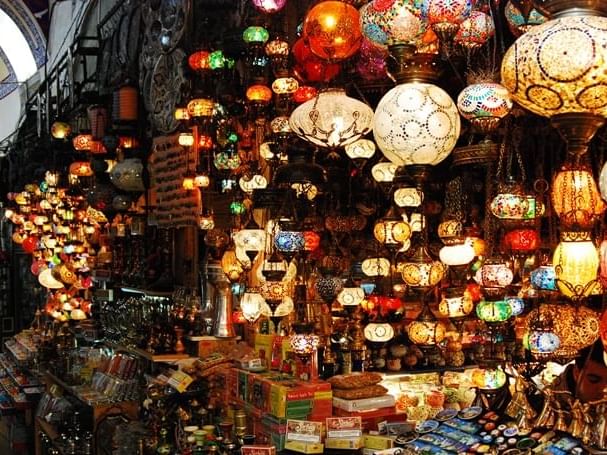
Grand Bazaar
The Grand Bazaar, also known as Kapali Carsi, dates back to 1461, with 5,000 shops making it one of the largest and oldest indoor marketplaces in the world. The bazaar features such items as jewelry, carpets, spices, antiques, and hand-painted ceramics.
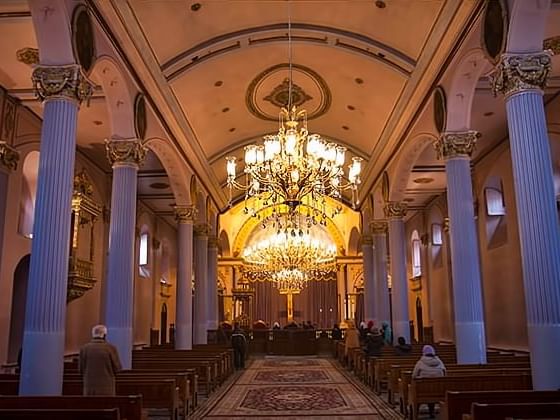
Holy Mother of God Patriarchal Church (Surp Asdvadzadzin)
It is a Gregorian church of Istanbul Armenian Patriarchate in Kumkapı neighborhood. The construction date is exactly unknown. There have been several repairs due to fires and the last repairs have been in 1902 and 1985.
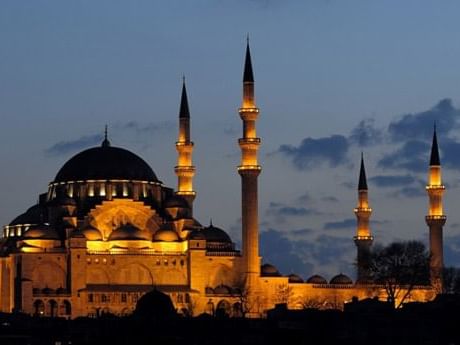
Suleymaniye Mosque
Towering over the historic city of Istanbul, the Suleymaniye Mosque is a captivating landmark renowned for its architectural grandeur, historical significance, and spiritual serenity. This magnificent mosque, commissioned by Suleiman the Magnificent in the 16th century, stands as a testament to Ottoman-era artistry and engineering. Its sprawling courtyards, towering dome, and intricate decorations captivate visitors from all walks of life.
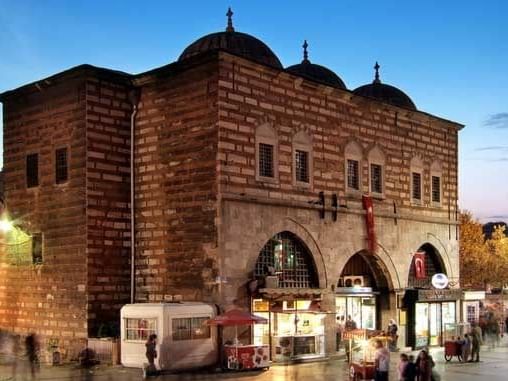
Spice Bazaar
The Spice Bazaar, also known as the Misir Çarsisi, is an explosion of sights, smells, and tastes in the heart of Istanbul. This vibrant marketplace, established in the 17th century, beckons visitors with its colorful displays of spices, herbs, teas, and other culinary delights.
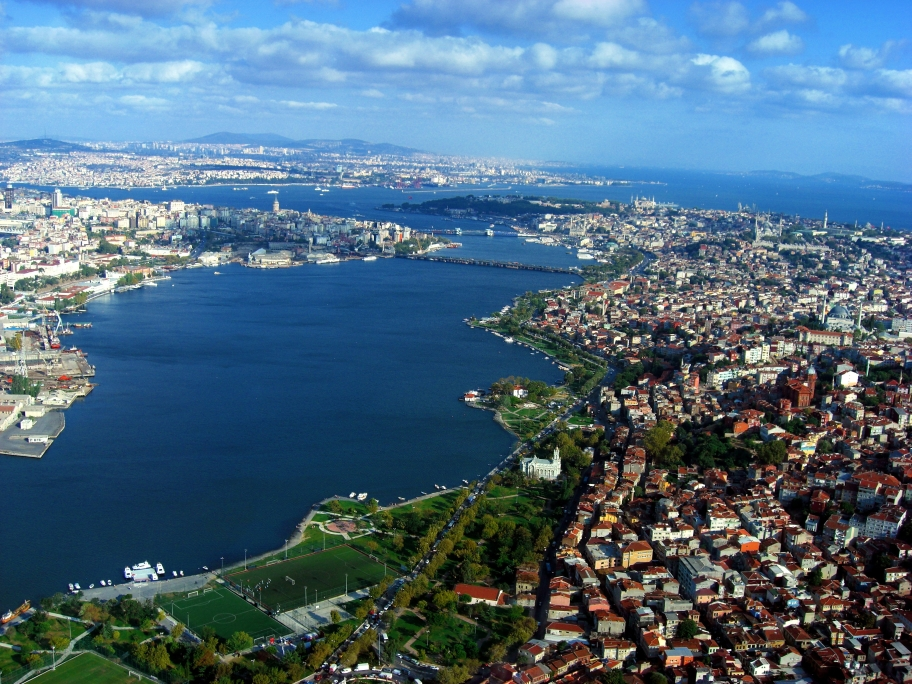
Golden Horn
Golden Horn which is known as Halic in Turkish, is a major urban waterway and the primary inlet of the Bosphorus in Istanbul. It geographically separates the historical center of Istanbul from the rest of the city and forms a natural, sheltered harbour.
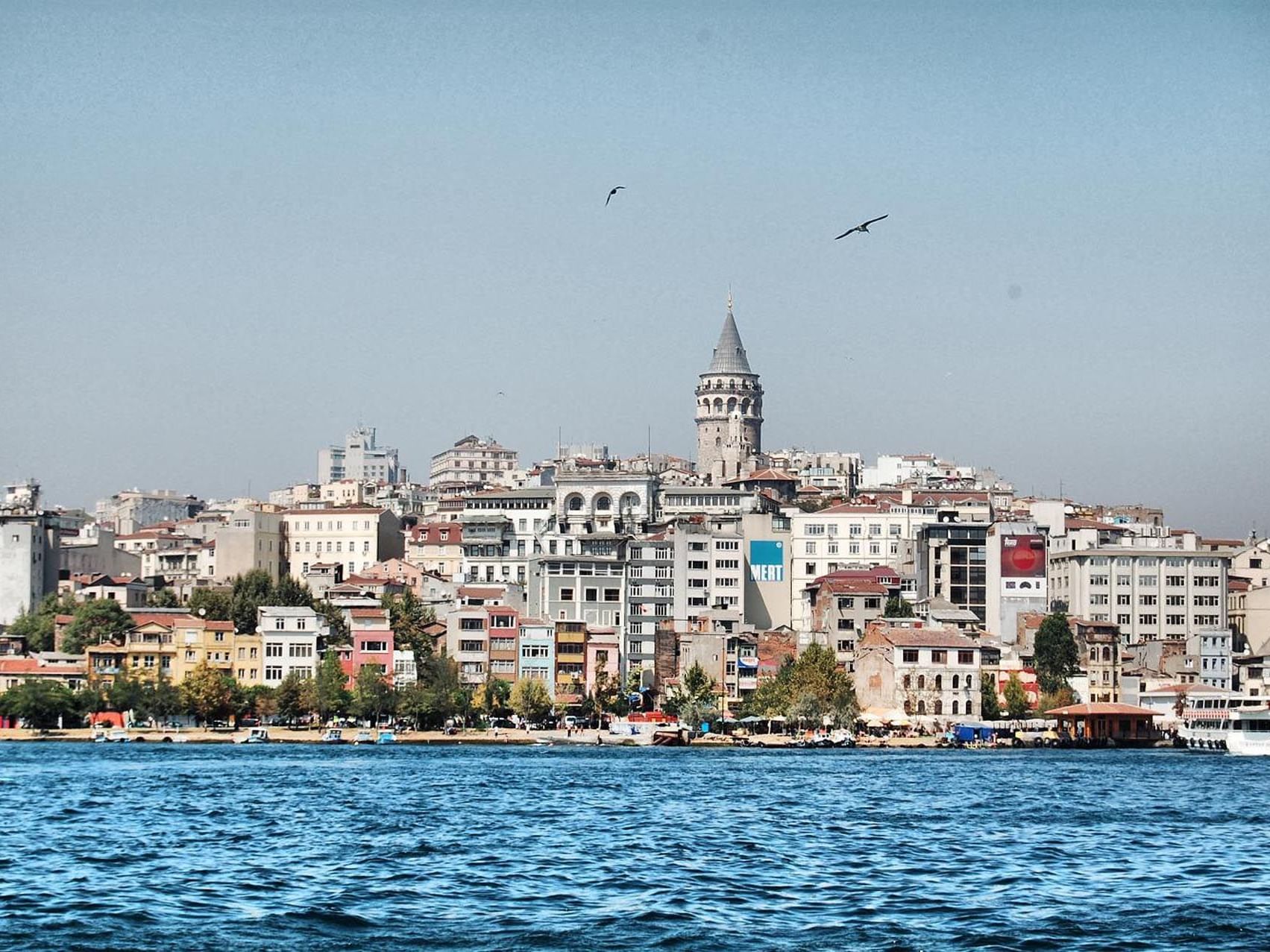
Galata Tower
At 67 meters (219 feet) high, the Galata Tower rules over the Istanbul skyline, offering great views of the old city and its surroundings. The medieval stone tower, known as the Tower of Christ, was the tallest building in Istanbul when it was built in 1348.
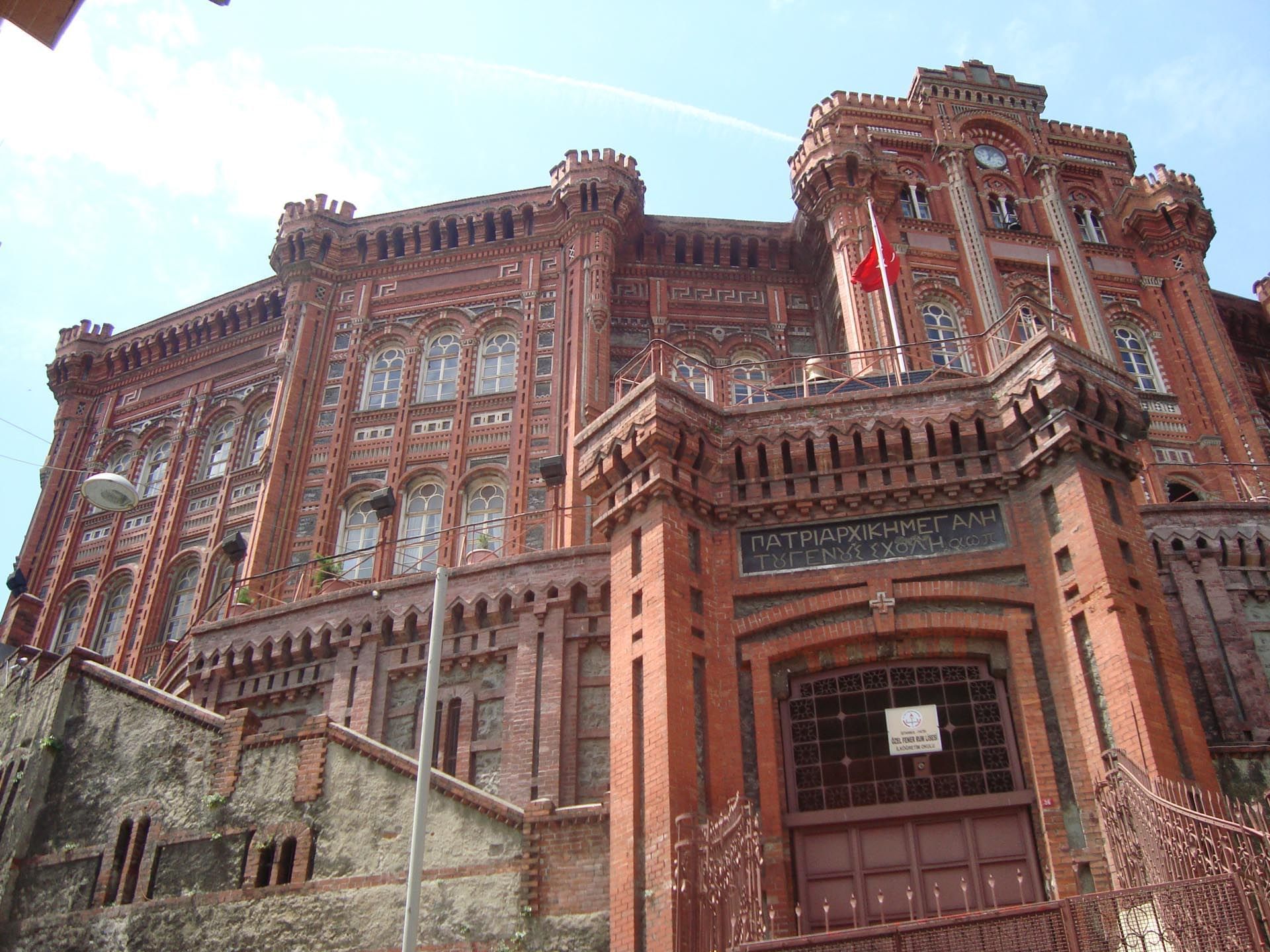
Fener Greek Orthodox Patriarchate
The patriarchate was established by one of Jesus’s Apostle Andrea in AD 37. After Roman Empire was divided into Eastern (Byzantium) and Western (Roman), it participated in the Orthodox Church within Eastern Roma (Byzantine) Empire in the 5th century.
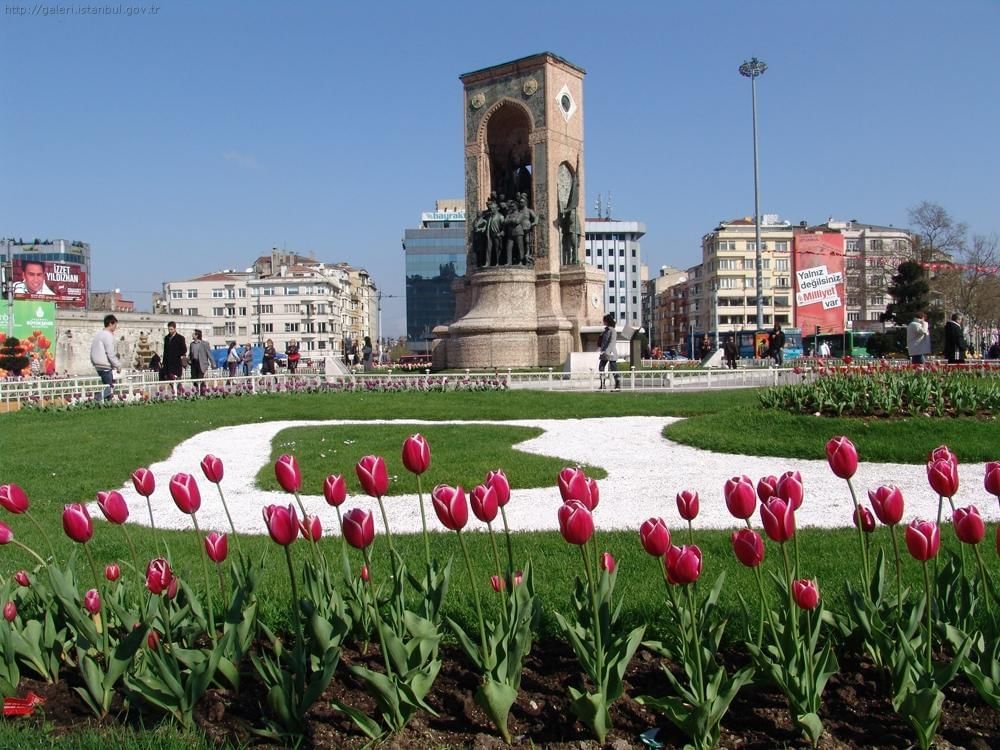
Taksim Square – Istiklal Street
Immerse yourself in the heart of Istanbul at Taksim Square, a bustling hub overflowing with energy. Step onto the iconic Istiklal Street, a pedestrian paradise lined with charming shops, buzzing cafes, and delectable restaurants.
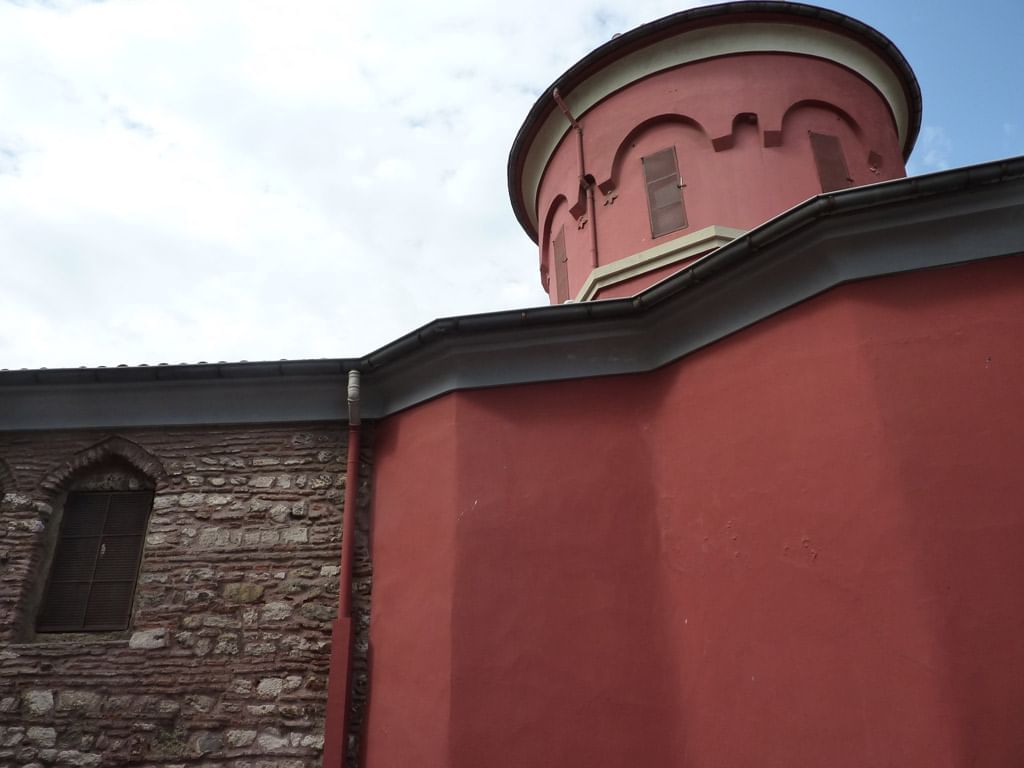
St. Mary Church of the Mongols
Embark on a historical adventure in Istanbul's heart, the vibrant Sultanahmet district. Step into the captivating St. Mary Church of the Mongols, a remarkable Byzantine church that whispers tales of the city's rich and ancient heritage.
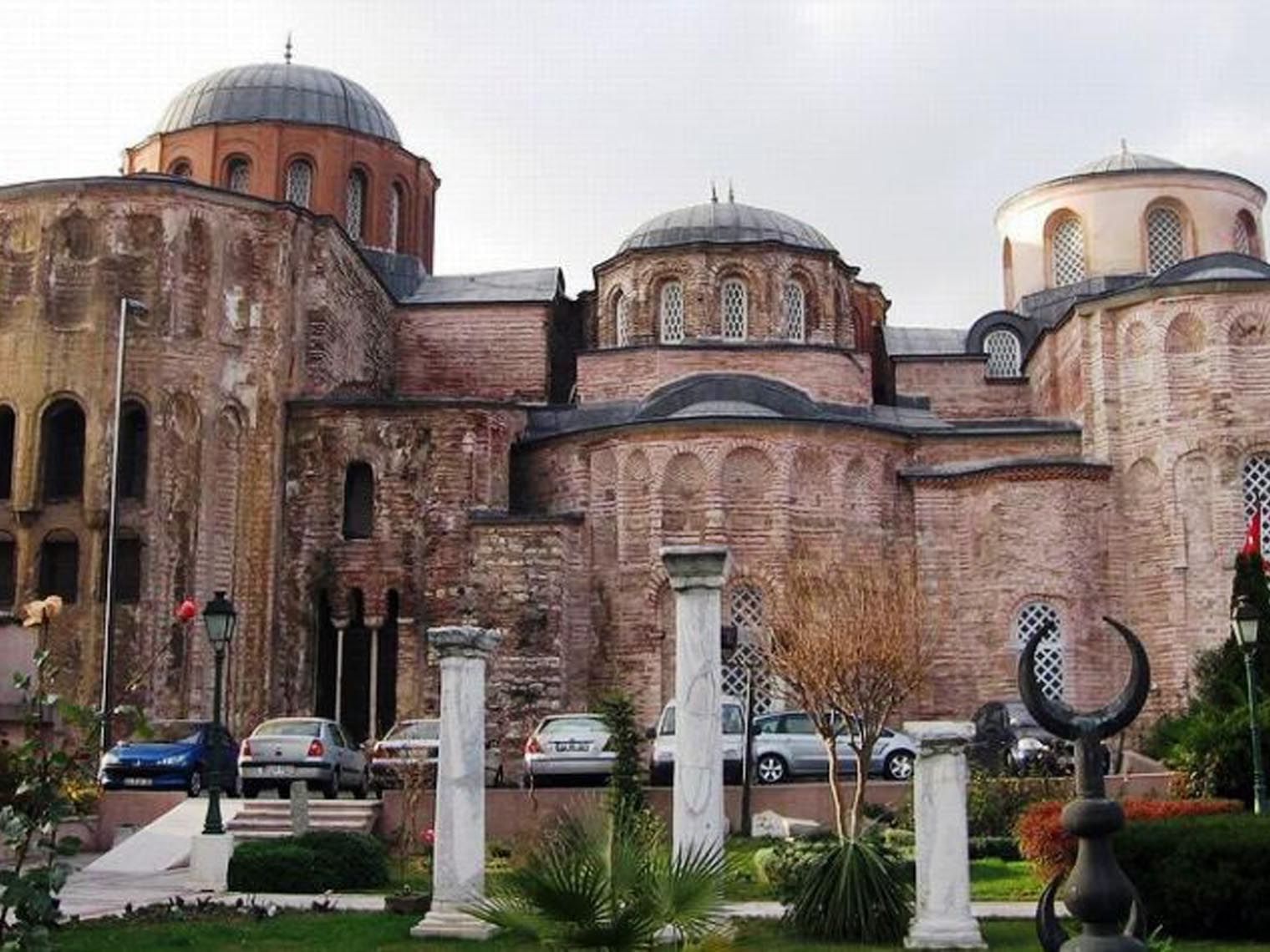
Chora Church
The Chora Church, also known as the Church of the Holy Savior in Chora, has been described as one of the most beautiful surviving works of Byzantine architecture. Dating back to the days of Constantine, Magnificent mosaics and frescoes depict the life of Jesus and his mother, Mary.
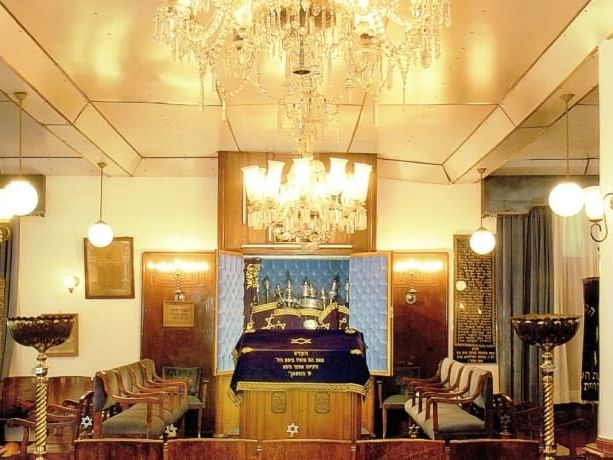
Ahrida Synagogue
The Ahrida Synagogue is in Balat which was built in the earlier 15th century. The synagogue which took its name from Ohrid town of Macedonia that the founders emigrated to Istanbul, is the largest capacity Synagogue of the city.
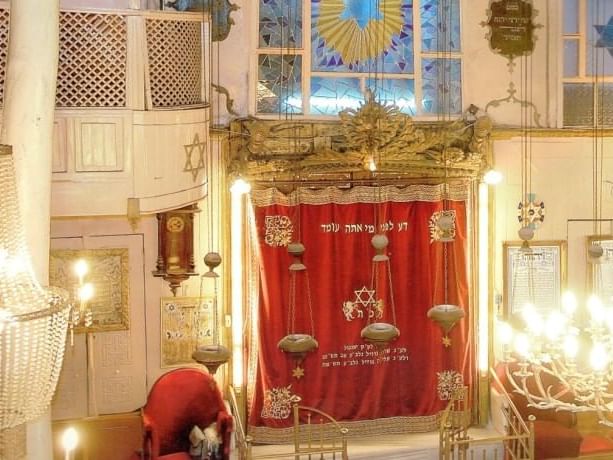
Yanbol Synagogue
The Yanbol synagogue is in Balat – İstanbul and built during the rule of Byzantine by the Jews from Yambol city of Bulgaria. It was rebuilt in the 18th century and it is one of the two remaining ancient synagogues.
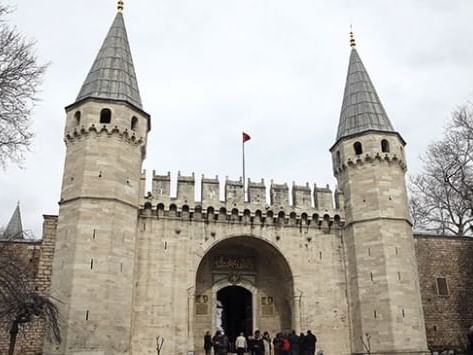
Topkapi Palace
Topkapi Palace, the Great Palace of the Ottoman Sultans, is the most extensive and fascinating monument of Ottoman civil architecture in existence and one of the must-see attractions in Istanbul that combines The Harem, The Treasury with the Spoonmaker’s diamond (also known as Kasikci Diamond) which is the pride of the Palace.
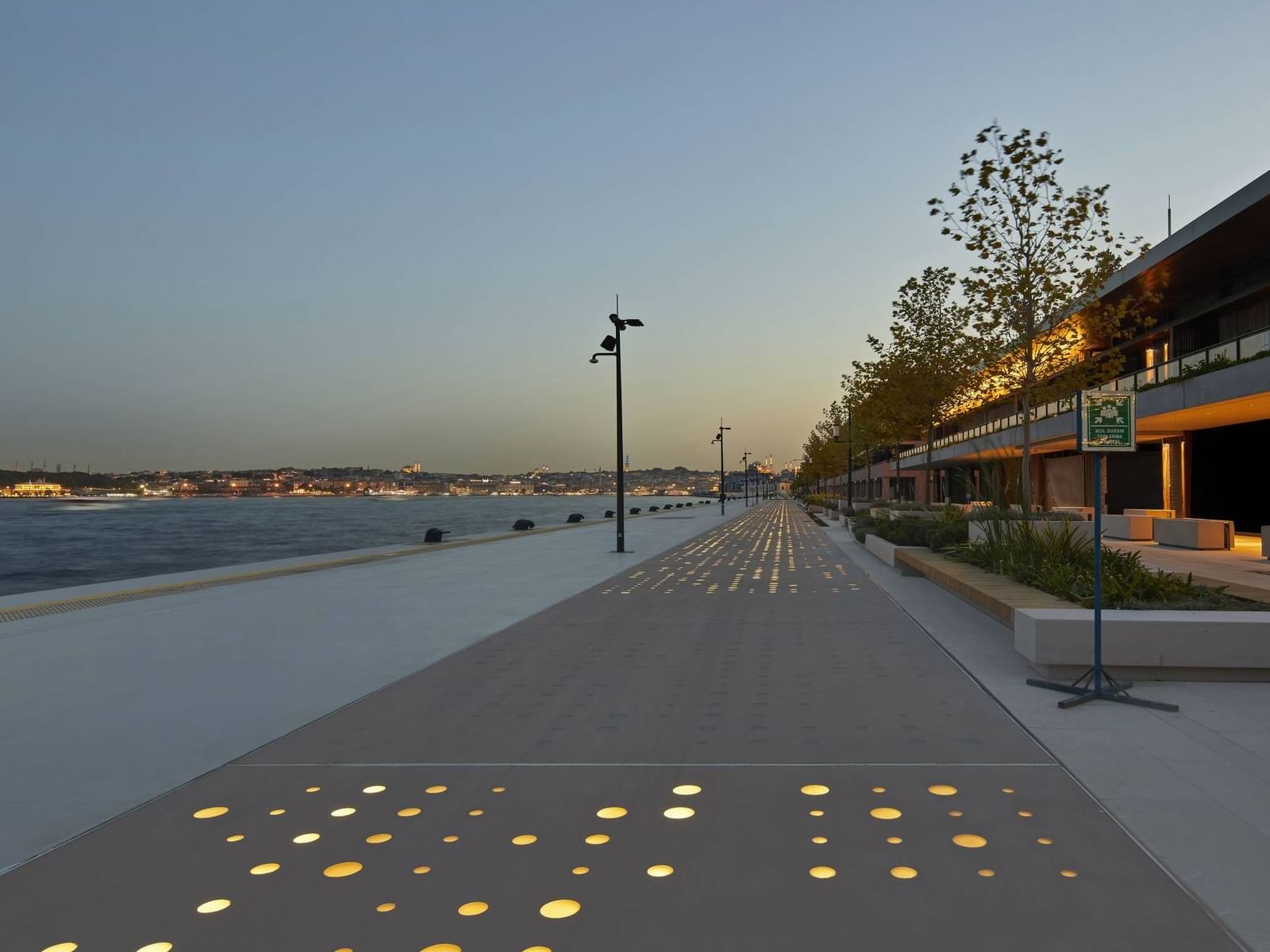
Galata Port Istanbul
The World’s First Underground Cruise Ship Terminal.
Positioned as a homeport, Galataport Istanbul is a world-class cruise ship port that is set to vitalize cruise tourism across an extensive region from the Mediterranean basin to the Black Sea. An exemplary project worldwide and a groundbreaking innovation thanks to its special hatch system that enables the terminal to be placed underground.
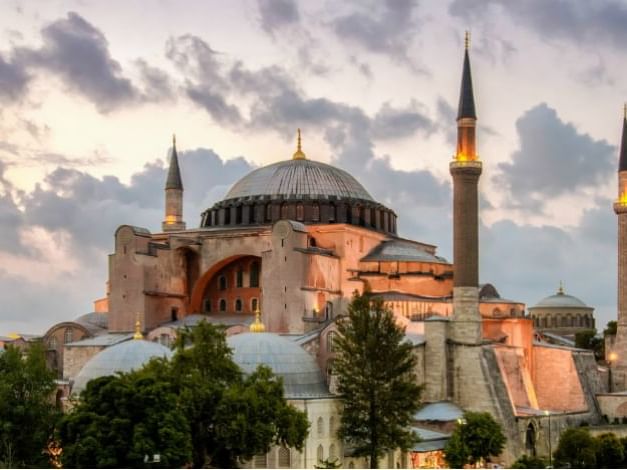
Hagia Sophia
The Hagia Sophia (Aya Sofya)served as the cathedral of Constantinople and was the center of the religious life of the Byzantine Empire. Also a house of worship that served several religions well over the centuries.